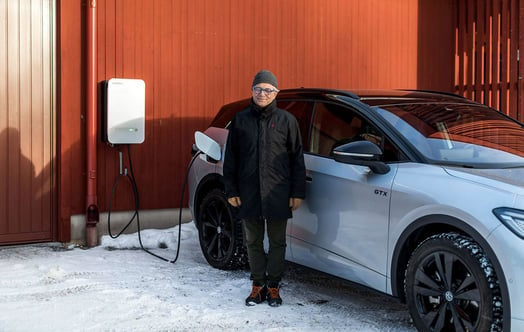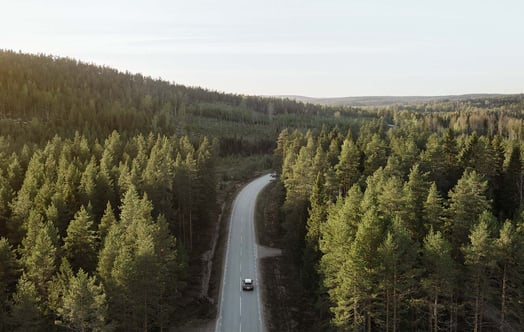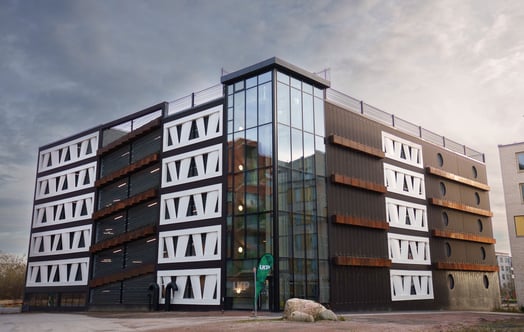Vattenfall and CAKE reveal hidden CO2 sources when producing an electric motorcycle
Leading European energy company Vattenfall and CAKE, producer of electric motorcycles, build climate awareness by defining the carbon footprint with a cube. “Fossil-free vehicles means that the entire production part needs to be decarbonized, regardless of the fuel they are running on”, says Stefan Ytterborn, founder and CEO of CAKE.
Vattenfall and CAKE today announced an innovative initiative to visualize carbon emissions from production. Within the joint project Cleanest Dirt Bike Ever, CAKE and Vattenfall are revealing the climate impact of producing one CAKE Kalk OR electric offroader by placing it in a cube, 8.6 meters tall, that represents the volume of carbon emissions – 637 cubic meters, equal to 1,186 kg of carbon dioxide.
“Fossil-free vehicles means that the entire production part needs to be decarbonized, regardless of the fuel they are running on. In fact, far from every company knows the carbon footprint from their own products. To understand and tackle our own impact, we have measured the emissions from our entire production chain for one CAKE Kalk OR, and started to decarbonize every step to a minimum by 2025. By doing so, our second most important contribution to the planet is to inspire other manufacturers to step up and do the same,” says Stefan Ytterborn, founder and CEO of CAKE.
Annika Ramsköld, Head of Corporate Sustainability at Vattenfall commented:
“Vattenfall works to enable fossil free living within one generation and is dedicated to finding partnerships that inspire and break barriers. This is one such project, where our main contribution is the broad knowledge in fossil free solutions and electrification of industries we have acquired over decades from our own as well as other industries.”
Cleanest Dirt Bike Ever – revealing climate impact
Within the project Cleanest Dirt Bike Ever, Vattenfall and CAKE have been collaborating since 2021 with the aim to produce the first ever truly fossil free vehicle – the CAKE Kalk OR electric offroader. By taking the bike apart and challenging every component and material – and all steps in the production chain – from a climate perspective, the decarbonization process has already begun.
The route to fossil free production will involve both CAKE and its existing suppliers, as well as a number of innovative makers of alternative components and materials that offer emissions to be further reduced. The life cycle assessment (LCA) concluded that producing one CAKE Kalk OR currently results in emissions of 1,186 kg CO2, equal to a volume of 637 cubic meters. Every successful step taken results in shrinking the volume of emissions.
An integral part of the collaboration between Vattenfall and CAKE will be the cube, a three-dimensional visualization of the carbon footprint from the production. The objective of the cube is to raise awareness among consumers and to inspire the manufacturing industry in general.
For further details, please contact:
Magnus Kryssare, Press Secretary, tel. +46 76-769 56 07, magnus.kryssare@vattenfall.com
Vattenfall Press Office +46 (0)8 739 50 10, press@vattenfall.com
Christian Lundgren, tel. +46 76-392 83 00, christian.lundgren@ridecake.com
Cake pressroom: ridecake.com



